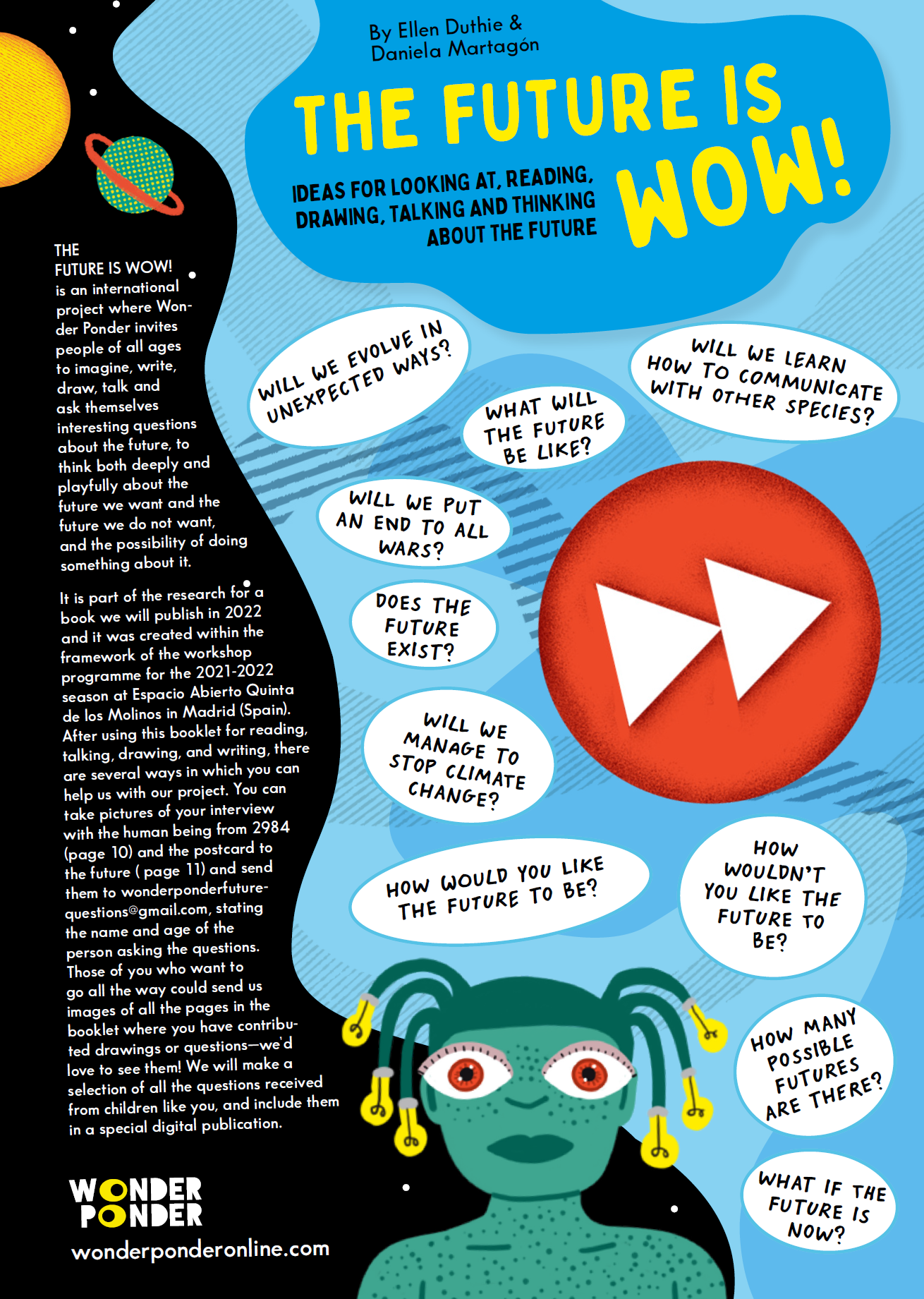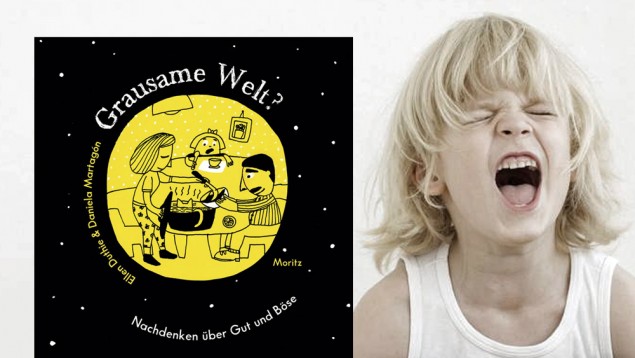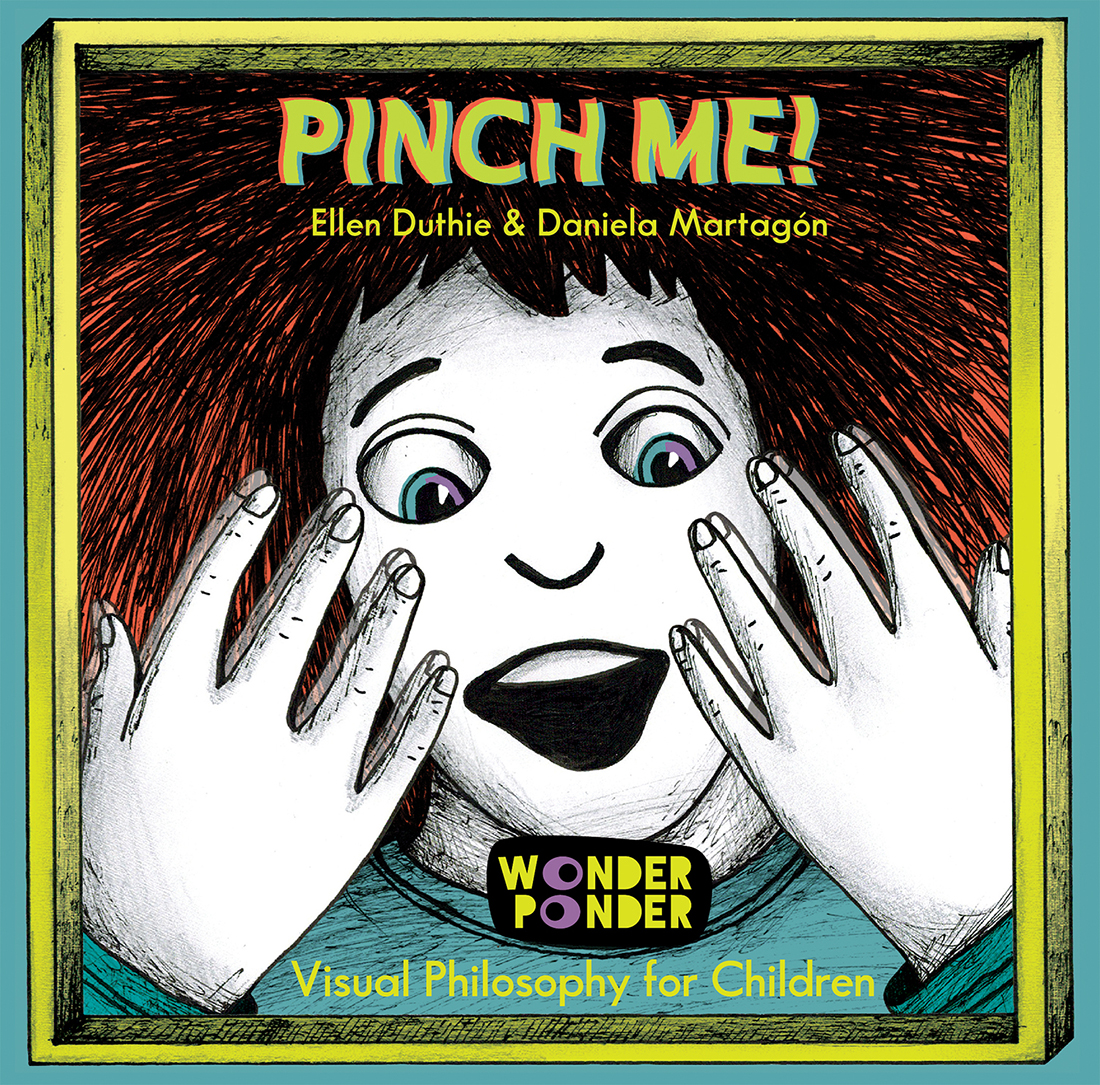Taking a plunge into the world with Ellen Duthie
Ellen Duthie
Interview with Ellen Duthie
originally published in Italian in
Why do you practice philosophy with children? Is it something that they need or is it an adult projection?
I practice philosophy with children because it is a joy to do. It is a joy for me -of that I am sure-, and I have reasonable evidence that children also find it a delightful pursuit and an engaging way of being in the world.
I started practicing philosophy with children in a somewhat organic (some might say messy?) manner. When I was at the University of Edinburgh studying philosophy, I also taught children English as a foreign language and Scottish children as preparation for sitting their exams. And it happened without giving it much thought, at least initially – I started sharing my philosophical interests and questions with my students, finding that it was a relatively foolproof way of sparking irresistible conversation.
Since then, I have developed a more thoughtful and methodical approach to my practice, with more of an awareness of what I am doing or trying to do, what I try out, what works and what doesn’t work so well. But that initial joy remains and sparks with every session and, I hope, in every book.
I think children and adults have a need to partake in the distinctly human sense of wonder about the world and to share time and space to think about our world, and ourselves and others in the world together. I am particularly interested in cross-generational philosophical practice too.
In one of the games you created, which later turned into a book, you dealt with the theme of cruelty: why this choice, apparently far from the themes usually proposed at this age?
Yes, Cruelty Bites was the first title (in Spain, Germany and Mexico it is published, as you say, more like a game, in a box with the pages loose inside; in Italy, Argentina and Korea it is published as a book) in the Wonder Ponder Visual Philosophy series.
The origins of the project and of this particular book were not particularly thought out from the beginning. In fact, it all started in a classroom, within the framework of a project at a Spanish state school, where I did philosophy with the same group of kids for about three years, from age three to five. I normally used picture books and other interesting provocations in the classroom, often several in the same session, in order to allow for explorations of a given idea or concept through very different starting points and approaches. I was always very interested in finding new and interesting ways of providing opportunities for comparison for young children. I find opportunities for comparison a very interesting way of generating interesting questions and thought processes. I had been thinking of broaching the subject of cruelty (or being “bad”) for some time, but I could not find any provocation or prompt I was happy with, so I thought of making my own prompts, in the form of scenes from a possible story (a bit like a snapshot, with the characters caught mid action). I jotted them down and, because I was lucky enough to have quite a few illustrator friends, asked Daniela Martagón to lend me a hand. I knew she would think it was an exciting challenge! To draw scenes for young children to think about cruelty without scaring them away but without making them “cute” either is certainly a challenge you don’t normally expect to get as a children’s book illustrator. And when she showed me what she had prepared, and especially when I took them to the classroom and showed the kids, I understood that we had come up with an idea worth exploring further. And eight years later, here we still are!
So to start with the theme of cruelty wasn’t initially a publishing decision but rather a classroom decision. Children aged four are young, yes, but they already have some experience of cruelty –as victims, aggressors and witnesses, and they often rather obsessed with “goodies” and “baddies”. They are also learning how to navigate the limits of acceptable behaviour (what can I do to others, what can others do to me?). So it is the perfect age to accompany a normative approach with an approach that allows room for questions and nuance in specific situations where kids are unsure as to whether a particular rule might apply or not and why, or where they are confused by the apparent collision of two seemingly contradictory rules, or where they start detecting contradictory behaviour in adults who often say one thing while doing another.
On a last note, thinking about cruelty tends to be a more powerful question and thought generator (at least initially) than thinking about kindness (even though, of course, thinking about cruelty inevitable leads to thinking about kindness).
On the homepage of your website, we read: open, look and think: why this strong reference to the body dimension? Could it be useful if this approach to philosophy were also extended to the world of adults?
One of the reasons we initially published these books in boxes, with the pages loose, and why, even in the book format, the questions are set out on the page in such a manner that you need to turn them again and again to read them, was indeed a belief that mental engagement is favoured or intensified through physical engagement. I believe this is true for children and for adults, and it is not in the least a new idea. The Peripatetics and many others since them have posited a curious link between movement of mind and feet. I think movement of hands also helps. There seems to be an interesting effect in terms of concentration when we link physical and mental action.
With those three simple instructions, we also mean to invite readers to take them to the real world. Look around you! If you do it for long enough, you’ll soon find yourself irresistibly stopping and thinking.
Check out and try out this simple but incredibly rich Wonder Ponder workshop.
And check out these other free Wonder Ponder downloadable resources in English
ELLEN DUTHIE
Ellen Duthie is the founder of the Wonder Ponder project of philosophy and literature for children, established in Spain in 2014. She is the author of the series of Visual Philosophy for all ages (Cruelty Bites, I, Person, Whatever You Want and Pinch Me!) with illustrations by Daniela Martagón, the Wonder Ponder mini series of stop-and-look books for babies and toddlers (Niño huevo perro hueso - Boy Egg Dog Bone- and Niña Gato Agua Pato -Girl Cat Splash! Duck-) also with illustrations by Martagín, and Hay alguien ahí? Preguntario interplanetario para terrícolas inteligentes? -Is There Anybody Out There? Interplanetary Questionary for Intelligent Earthlings- (with illustrations by Studio Patten). Her latest book, Un par de ojos nuevos -A New Pair of Eyes, is a theatre play of sorts, illustrated by Javier Sáez Castán and Manuel Marsol. Her books have been published in Spain, Mexico, Argentina, Brasil, Italy, Germany and South Korea.
Ellen was born in the very south of Spain, in Cádiz, in 1974, to British parents. She went to school in Spain and then to university in Scotland. She now lives in Madrid, with her partner and son, doing lots of different things including writing, translating, teaching and training teachers, as well as organising and directing the annual International Philosophy, Literature, Art and Childhood Course (FLAI) in the stunningly beautiful mediaeval village of Albarracín (Teruel, Spain).














